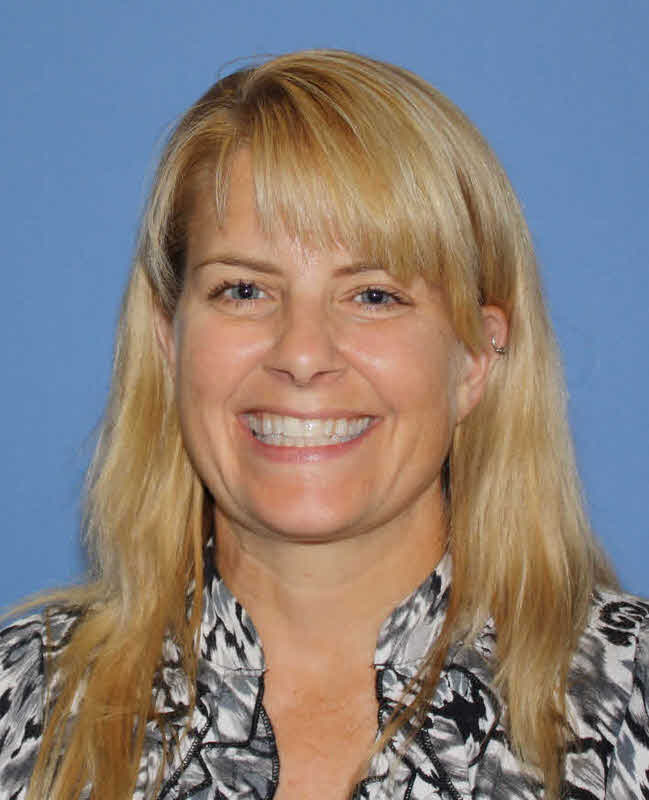How Does Oral Health Affect An Unborn Child?

Master’s in Dental Hygiene student Stacey Schramm researches the connection between oral health and pregnancy complications.
Tell me about yourself.
I live on a small farm in Springport,
Michigan. I am a military wife, married
to an officer who works full time for the state of Michigan in the National Guard. We have 3 children (one boy age 10, two girls (19 & 22), horses, cows, goats, and cat. My son and I are both hockey players- so we are a big hockey family. Apart from hockey, I enjoy horseback riding, skiing, snowmobiling, reading, and traveling
(only Hawaii is left to for me to see before I can say that I have been to and spent time in all 50 states).
Why did you pursue a masters in dental hygiene?
I am passionate about learning and the pursuit of higher education as well as being passionate about the profession of dental hygiene. A masters in dental hygiene seemed like the perfect program to combine many passions.
Why the UTHSCSA online program? What did you
like most about your program?
I had researched a lot of graduate programs and decided on UTHSCSA because of the small cohort size and the great faculty reputation. I have used a lot of material that was created at UTHSCSA for teaching units in the past and felt like there was a lot of good research and information coming from the institution.
 I liked that I could be affiliated with a college close to home and work on projects for my classes at UTHSCSA to benefit myself, both colleges, and the students. I was impressed with the UTHSCSA faculty knowledge and willingness to do whatever they could to accommodate and help me along my journey.
I liked that I could be affiliated with a college close to home and work on projects for my classes at UTHSCSA to benefit myself, both colleges, and the students. I was impressed with the UTHSCSA faculty knowledge and willingness to do whatever they could to accommodate and help me along my journey.
Why are you passionate about your research
topic? When did you first become interested in it?
I love to teach people things that they do
not know. In general, people lack information about how oral health affects overall health. In the case of pregnant women, that lack of knowledge affects not only them, but their unborn child. There is a lack of knowledge on the part of the health care providers that work with pregnant patients.
The pregnant patient has to be informed about the connection between oral health and pregnancy complications. Dental hygienists can be a key person to educate these patients, increasing the likelihood of a successful full-term pregnancy and that is what everyone involved in the care of a pregnant patient would want.
I know that you recently were published in the Journal of Dental Hygiene. Tell me about this experience.
I  was very excited about being a apublished
was very excited about being a apublished
author’. It was so much work, time, and effort and being published made it all seem worth it.
I know the master’s degree was the main goal, but being published was icing on the cake! {I was actually very nervous about everyone seeing amy baby’, my research that I had worked on for so long- wondering what opinions would be or worried about criticisms}.
Your article was on the oral care for pregnant patients? What did you learn from your research?
I learned that there is so much more to learn. There has to be inter-professional collaboration and respect among professions to work together for the best possible patient care. There is so much knowledge and information about pregnancy and oral health that dental hygienists can deliver and it is important for other health care professionals to recognize and include our profession in an overall care plan for achieving the best possible outcome for a pregnant patient and their unborn child.
What’s next for you?
I recently accepted a full time faculty position at Kellogg Community College teaching dental hygiene.
Do you think your degree will help you in your
future career? In what ways?
It has already helped me in my future career. My goal was to teach dental hygiene and I am in a full-time faculty role—my dream job! I plan to become more involved in dental hygiene legislation at the state level to expand the scope of practice for dental hygienists so they can work in roles that help the underserved populations who are not receiving regular care.
